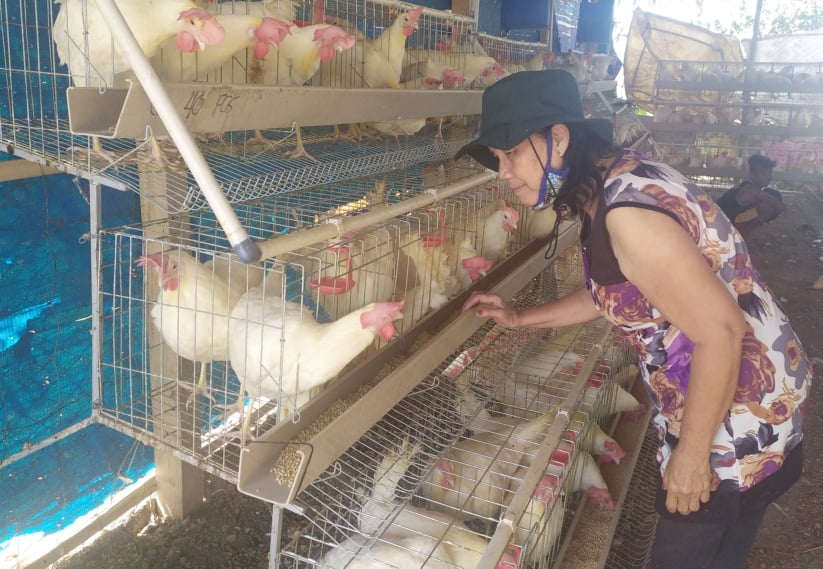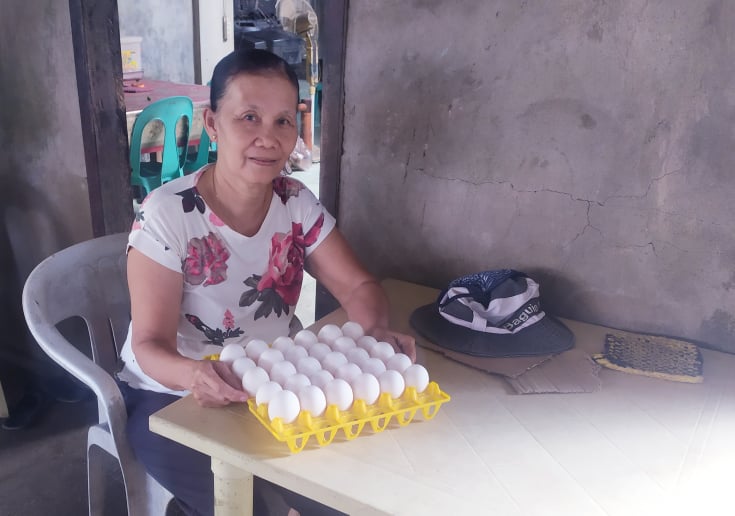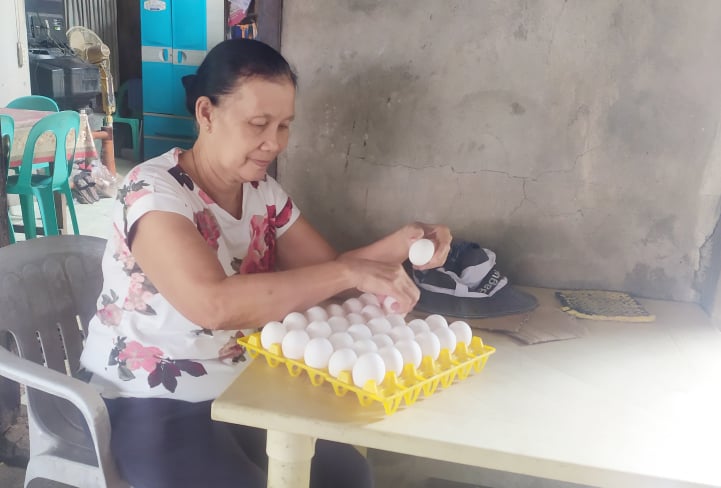The bottom line of social integration is to aim for a balanced and cohesive relationship between sectors in the community. While impairments occur among the old age sector that can hinder functional roles in society, an emphasis on the free exercise of rights and responsibility in the community should be promoted.
Senior citizens are a repository of community values, traditions, and customs. They are a living carrier of experiences throughout history who physically lived during significant times that led to the current cultural, economic, and political systems in society.
With this in consideration, policies and programs that promote inclusion and provide the needs across age sectors should be initiated and at the very least, supported.
It is essential for the old age sector, especially from the marginalized rural communities, to be linked to different groups that consider them as part of an active community, economic, or political operation.
The Department of Agriculture – Special Area for Agricultural Development (DA-SAAD) Program understands the need for the senior citizen community members especially in the rural areas where poverty incidences are high to remain in the loop of economic activities.
Through agricultural livelihood provisions, seniors are welcomed in farmers’ associations where they are given an opportunity, once again to have the capacity to source food and income for the younger members of the family.
In encouraging this, through the program, seniors can access both economic and personal well-being development.
Nanay Rosita’s retirement journey
SAAD’s Egg Production Project has been Rosita Masangkay or Nanay Rosita’s main source of income since she retired as a volunteer Barangay Health Worker in Brgy. Calawag, Magsaysay, Occidental Mindoro in 2020. The project makes it possible for her to continue to support her family’s food and her personal maintenance medicines.
Nanay Rosita, 65, is a member of the Poultry Calawag Association (PCA) since its inception in 2019.
Upon learning about SAAD’s proposed egg production project, Nanay Rosita showed interest in becoming a part of the production because of its potential. She was appointed as the association’s auditor, working alongside other officers in managing the group.
Nanay Rosita is no stranger to hardships in life. A native of Calawag, she worked as a kasambahay or helper for her relatives at a very young age (10 years old) to support her schooling until middle school. Her education was forced to a halt due to financial difficulties.
In the mid-’70s, she had her own family and settled in the same barangay in Occidental Mindoro. She and her husband worked in the fields as farm laborers, arawan as they call it, earning Php 100/day to send their four children to school.
“Araw-araw ako nag-aarawan para may baon ang mga anak ko. (Wala kasing paaralan dito noon kaya) sa San Jose pa sila nag-aaral kaya kailangang-kailangan nila ng pamasahe,” shared Rosita.
[I worked on the farm for a daily commission so I can provide allowance to my children. (There were no schools in our town so) they had to go to San Jose for school, that’s why they really needed money for transportation.]In 1982, Rosita volunteered to be a Barangay Health Worker (BHW) in Calawag. She assisted neighbors with their health concerns serving her community for 39 years, receiving a very humble allowance of Php 550/month.
Because of rheumatism as she approached her golden age, Nanay Rosita stopped working in the fields and as a BHW, focusing her energy on household activities.
Now that she’s decided to retire, Nanay Rosita turned her attention to her involvement in the SAAD Program.
Nanay Rosita and PCA’s Egg Production Project
PCA has a policy of a 30:70 ratio on yield production per day. The group rotates members on duty for the poultry site, where 30% of the day’s egg harvest will go to the member assigned on the day, while 70% shall go to the association.
In a month, each member is able to tend the poultry site at least twice. Nanay Rosita receives an average of 83 eggs every month from managing the poultry. On-site, she feeds the chickens, monitors and records data, and harvests eggs.
Some eggs are used for her family’s food consumption, some are shared with her other relatives, while the rest are sold to the neighbors and sari-sari stores for Php 6 apiece.
In three months, Nanay Rosita was able to save Php 1,500 from selling eggs which are used for maintenance medicine for her and her husband, and for their eldest son who suffered from a severe seizure a few years back. Her modest income, combined with her husband’s income from being a street sweeper employed by the local government is put together by her family to get by.
“Tumatak sa isip ko ang sinabi ni Engr. Ferry noong nag-training kami. Sabi niya sa amin na kailangang buo ang loob naming mga benepisyaryo at magsanay at maglaan kami ng oras lalo na’t kumikita ang aming samahan. Nagpapasalamat ako sa SAAD kasi naging miyembro ako (ng Poultry Calawag Association) kahit na matanda na ako. Mayroon akong napagkukunan para matulungan ko ang asawa ko sa mga gastusin namin. Gusto kong magtuloy-tuloy pa dahil may kita na, may natututunan pa,” Nanay Rosita shared.
[I remember Engr. Ferry’s words during our training. He told us that we need to be determined and we need to train and allot time for our earning association.I am grateful to SAAD because of the opportunity to be a member (of the Poultry Calawag Association) even in my retirement age. I now have a source of income to help my husband provide for our needs. I still want to continue because not only does the project provide income, I also learn.]
Currently, the farmers PCA is engaged in egg production by the SAAD Program, from which they received ready-to-lay chickens of Lohman breed (2019 inputs) and shall be receiving another 288 head for expansion. This project is supplemented with feeds, vitamins, and other poultry materials. The group also plans to engage in swine production.
SAAD Program: empowering sectors and communities
While old age is usually accompanied by quips on discounts, pension, and priority lanes, there are significant social undertones in being a “senior citizen”.
How Filipinos view the concept of family is relatively successful in embedding a culture that honors the old age sector. Values such as pagmamano, using po/opo, calling strangers with the same terms we use to call our own family such as lolo, lola, or ‘nay or ‘tay demonstrate how communities show a sense of integration across sectors.
Although it is very quick to link old age to quips and vulnerability, especially during the recent health and economic crises, a number of old age people still actively participate in varied economic activities.
It is imperative that policies should consider and align the old age sector to foster their potentials and maximize their participation, specifically in food production and other economic activities.
However unfortunate, specific to the marginalized sector, senior citizens like Nanay Rosita continue to work to provide for themselves and the younger family members. Programs and initiatives such as SAAD comprise a holistic approach for the senior beneficiaries to physically engage in agricultural activities fit for their health limitations while providing a sense of fulfillment and relationship through independent food production and earning profit through small enterprises. ###
Writers:
Dianne Francis Sy, SAAD MIMAROPA Information Officer I
Jessamae Gabon, SAAD NPMO Information Officer I
Editors: Myer Mula, Ulysses Lustria, Jr., and Jhomai Canlas
Sources:
Vilmar J. Robes, SAAD Area Coordinator – Magsaysay,
Linda Masangkay, Chairperson, Poultry Calawag Association
Rosita Masangkay, Member, Poultry Calawag Association
Quincel E. Ramos, SAAD NPMO Monitoring and Evaluation Officer




Comments (0)